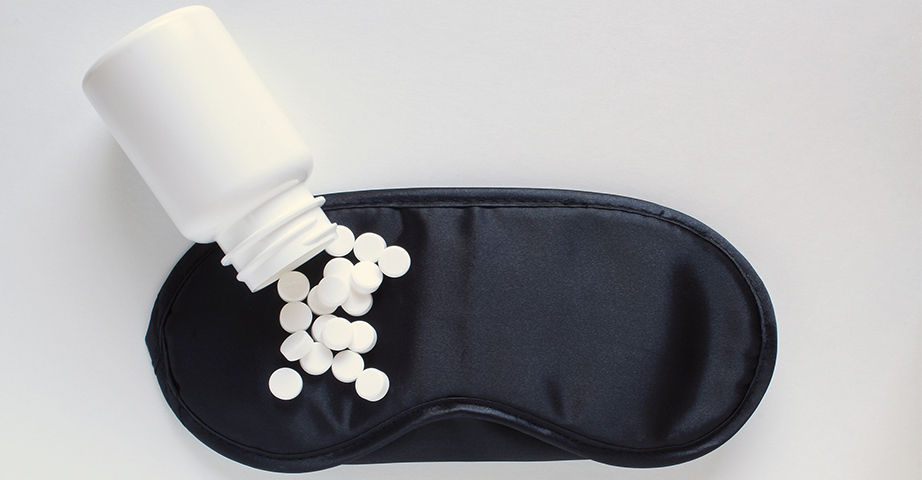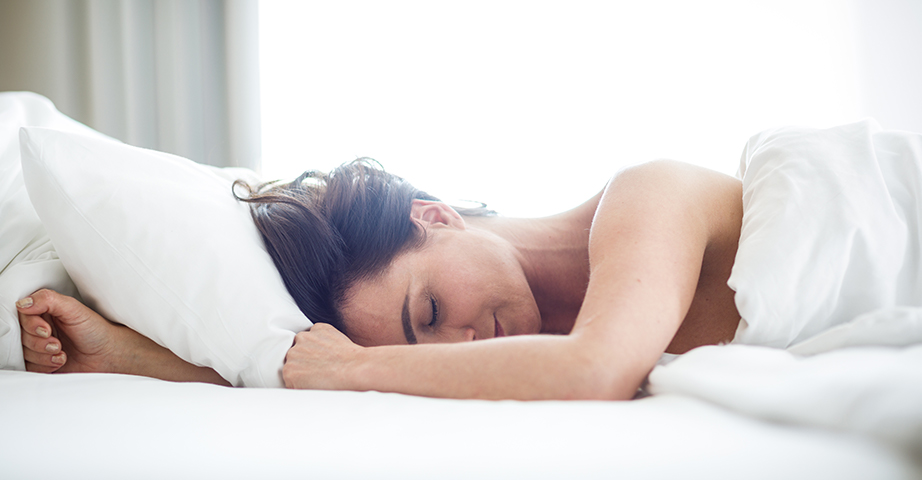Melatonin for sleep and more - effects and dosage of melatonin

The intake of melatonin supplements for sleep is common among people with sleep disorders. Melatonin is a hormone naturally secreted in the brain which controls circadian rhythms. How does melatonin for sleep work? Is it effective? How much melatonin should you take to reduce sleeping problems?
Melatonin - what is it and how does it work?
Melatonin is a hormone naturally produced in the brain, more specifically in the pineal gland. It was identified in 1958. Its effects have been studied since then. The secretion of melatonin is dependent on the amount of available light. Exposure to light inhibits melatonin production in the pineal gland, while darkness stimulates it. Melatonin secretion is closely connected to the human circadian rhythm (i.e. the internal clock), sunrise and sunset - it starts at dusk, increases gradually, reaching a maximum concentration in the middle of the night, and gradually decreases as dawn approaches.
Melatonin is responsible for the feeling of drowsiness. It inhibits the signals in the brain that enable concentration and alertness, which translates into an increasingly strong feeling of fatigue and the need of falling asleep. Exposure to light at night reduces the secretion of melatonin by the pineal gland, and in the long term can lead to sleep disorders. Some people suffering from insomnia are diagnosed with low melatonin levels. The attempts of treating insomnia and other sleep problems led to the popularisation of using melatonin as a sleep supplement.
Recommended products with melatonin
The use of melatonin for a good sleep
Melatonin in dietary supplements is synthetic and man-made. Since melatonin increases the feeling of drowsiness, it is used for:
- fatigue due to the time difference (jet lag), most often caused by air travel to other time zones,
- disturbances of daily rhythm among blind people,
- delayed sleep phase syndrome - a disorder characterized by late falling asleep and getting up in relation to the time frame considered normal in a given society; the moment of falling asleep is shifted from 3 to 6 hours and makes it difficult to function in society, e.g. getting up for work,
- sleep problems among shift workers who sleep both day and night,
- sleep problems among children with autism or ADHD,
- insomnia caused by a variety of reasons.
How to use melatonin for sleep?
To notice the effectiveness of melatonin for sleep, big doses are not needed, as taking it in larger amounts does not make you fall asleep faster. The hour of taking melatonin is even more important than the amount. It is recommended to take small doses and increase them over time if the desired effects are not observed, but not to exceed the recommended amounts of melatonin for sleep. One study review suggests that a typical dosage of melatonin ranges from 1 to 5 mg. If high doses (5 to 10 mg) do not provide relief from sleep, it is better not to increase the dose but to look for another remedy that may help. Overuse of melatonin will only result in side effects. According to current knowledge, melatonin for sleep is "probably effective", but it must be taken into account that it does not help everyone and for every type of insomnia.

Melatonin dosage
FOR FATIGUE CAUSED BY TIME DIFFERENCE (jet lag) – Melatonin should be taken after reaching your destination, at the time you want to go to bed. Scientific studies show that taking melatonin speeds up falling asleep for eastern travel. There is no evidence that it is effective when travelling west.
Dosage: 0.5-8 mg melatonin before bedtime on the day of arrival at your destination, continuing for 2-5 days. Low doses of 0.5-3 mg are often used to avoid the side effects of higher doses.
IN SHIFT WORK – In the case of night work, melatonin should be taken at the end of the work shift, but only if you do not return home by car. In this case, you should take melatonin as soon as you get home. It is possible to fall asleep at the wheel.
Dosage: 0.5-5 mg 30-60 minutes before going to sleep.
FOR INSOMNIA – If you experience problems with falling asleep, take melatonin about 30 minutes before going to bed.
Dosage: 2-3 mg daily in a single dose. In scientific studies, such doses were taken for up to 29 weeks.
IN DELAYED SLEEP PHASE SYNDROME – The principle is the same as in insomnia. Melatonin should be taken about 30 minutes before going to bed.
Dosage: 0.3-5 mg daily in a single dose. In scientific studies, such doses were taken for up to 9 months.
FOR SLEEPING PROBLEMS AMONG BLIND PEOPLE – In case of disturbances of the circadian rhythm due to the impossibility of controlling the secretion of melatonin by the presence of light, the melatonin supplement is taken 30 minutes before going to bed.
Dosage: 0.5-5 mg daily in a single dose. In scientific studies, such doses were taken for up to 6 years.
With the intake of melatonin, the time of supplementation is crucial. Using it at the wrong time can completely disrupt a person's circadian rhythm. When taking melatonin, it is also important to make sure that it supports the natural effects of melatonin and does not further disrupt sleep. Therefore, after taking a supplement, you should avoid light sources - telephone, television, overhead and strong lights.

Side effects and contraindications of using melatonin
Melatonin is considered safe for most adults. When using melatonin, especially in high doses, some people may experience nausea, dizziness, drowsiness at undesirable times and irritability. Contraindications to melatonin use include:
- pregnancy,
- breastfeeding,
- autoimmune diseases,
- non-epileptic seizure disorders,
- depression.
Melatonin interacts with anticoagulants, some antidepressants as well as anticonvulsants, drugs for high blood pressure and diabetes, contraceptives, CNS depressants and diazepam (used for anxiety and seizures). If you are taking any of these medications, it is absolutely mandatory to consult your doctor before deciding to use melatonin. Melatonin is also given to children, but the implementation of supplementation requires consultation with a paediatrician.
Other uses of melatonin
Melatonin is mainly known for its use as a sleep aid. However, it also exhibits other health-promoting and potentially therapeutic properties on which scientific research is still in progress. According to recent reports, melatonin may:
- support the treatment of certain cancers,
- reduce pain during endometriosis,
- lower blood pressure at night in people with hypertension,
- reduce migraines,
- reduce anxiety before surgery,
- reduce platelets.

